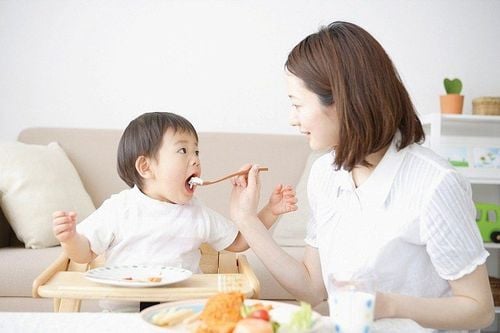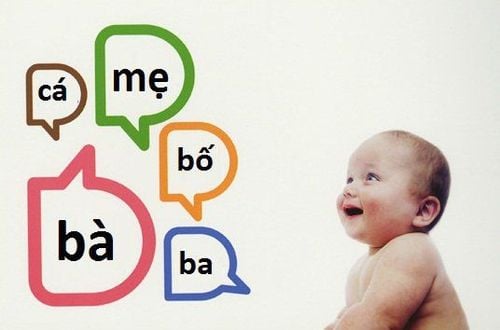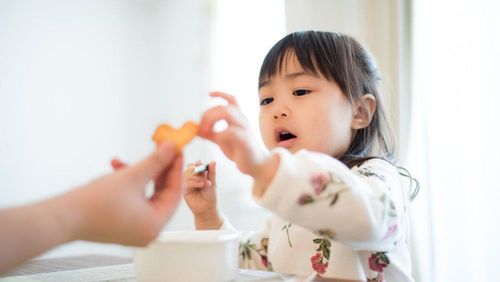This is an automatically translated article.
20-month-old babies have learned to talk and have a certain vocabulary to form simple sentences. This is a milestone in the language development of 20-month-old babies. In addition, children tend to understand more words with what they can say, which is a testament to their cognitive maturity.
1. What does a 20-month-old baby know?
Characteristics of children this age: The ability to form meaningful sentences
It may be just a pair of words for an adult, but is a full sentence for a 20-month-old and is a huge step forward in terms of language acquisition. "Daddy's hat" is a child's way of saying, "This is dad's hat." Or, "Na Doll" represents the meaning that the child knows a particular toy belongs to his sister. A child's vocabulary at this age may also include a few verbs like "go" or "fall", which children also use to make simple sentences - such as "mom go" or "i fell". . Between 18 and 21 months, babies seem eager to imitate words they hear around them. A normally developing 20-month-old has an average verbal vocabulary of 12-15 words, although many children know much more. But even if your baby can't say simple sentences yet, a 20-month-old can understand more words than he can say. If you want to verify this, ask your child to come into the room and bring you a pair of pajamas (or some other item you've never heard your child call out). Chances are high that the child will walk away and return with the exact object that the parent asked for.
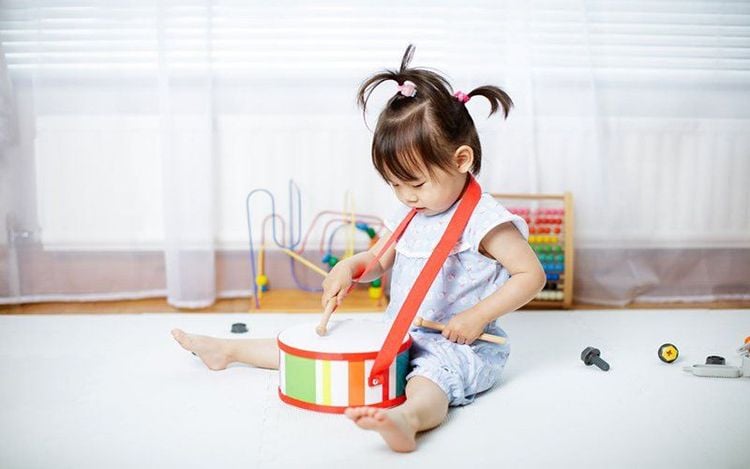
Trẻ 20 tháng đã có khả năng thành lập các câu có nghĩa
2. What can parents do to promote the language and cognitive development of their 20-month-old babies?
Continue to encourage a love of language by talking to children and labeling things that family members see together. Don't forget to take advantage of the value of the sound. Your 20-month-old will love hearing things like sirens, barking dogs, or singing birds. Try labeling what your child can hear often, like "weeee, siren". Toddlers are often more likely to repeat and imitate sounds than words that name the objects that make them. Also, if your child wants to talk on the phone, invite a friend of yours or a family member willing to talk to your child for a few minutes. Although your child's response may be to nod or shake his head when answering a friend's questions over the phone, he or she will enjoy the interaction. These are things that parents can do with their children, to help them increase their ability to communicate and interact with their surroundings.
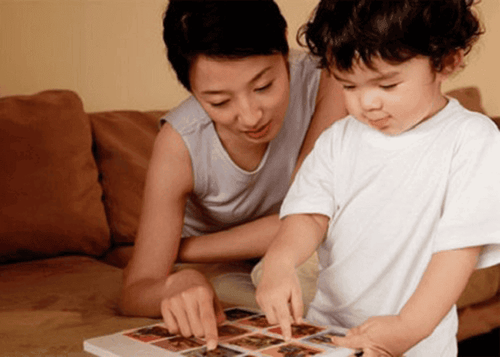
Bố mẹ nên khuyến khích tình yêu ngôn ngữ bằng cách nói chuyện nhiều hơn với trẻ
3. What can a 20-month-old baby do besides language development?
Other developments: Helping people together and learning how things work
Whatever adults are doing, children may still want to do it right next to them. Brush your teeth, vacuum, make your bed, cook, dig in the garden, etc. Great learning experiences for 20-month-old babies. Even when children are not coordinated enough to help, they still store information for later use through observation and listening.
If your child wants to help out at home, think of some simple chores that a 20-month-old can do. When setting up the table, ask your child to place a spoon on each pad or set up his or her own place with a plastic plate and napkin. Listening to and learning to follow instructions also helps build a child's speaking vocabulary.
At this age, children will be very curious about how things work. Children may enjoy taking apart toys and trying to put them back together. And the game "hidden object" and shape sorting box is still the most popular. Simple puzzles, a variation of shape sorting, will be interesting to 20-month-olds (choose puzzles where each piece is a whole picture, such as an animal or a car). car).
For children to be healthy and develop well, it is necessary to have a nutritious diet in terms of quantity and quality balance. If children are not provided with adequate and balanced nutrients, it will lead to diseases of excess or lack of nutrients, which adversely affect the comprehensive development of children in terms of physical, mental and motor skills.
Parents should supplement their children with supportive products containing lysine, essential micro-minerals and vitamins such as zinc, chromium, selenium, and B vitamins to help fully meet their child's nutritional needs. At the same time, these essential vitamins also support digestion, enhance nutrient absorption, help improve anorexia, and help children eat well.
Parents can learn more:
Signs of zinc deficiency in children
Micronutrient deficiency and failure to gain weight in children
Please regularly visit Vinmec.com website and update useful information to take care of your child. Take care of the baby and the whole family.
Reference source: babycenter






